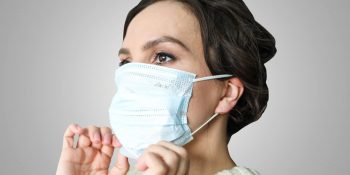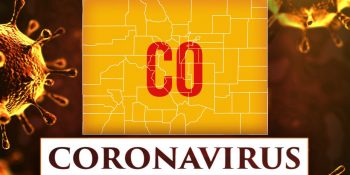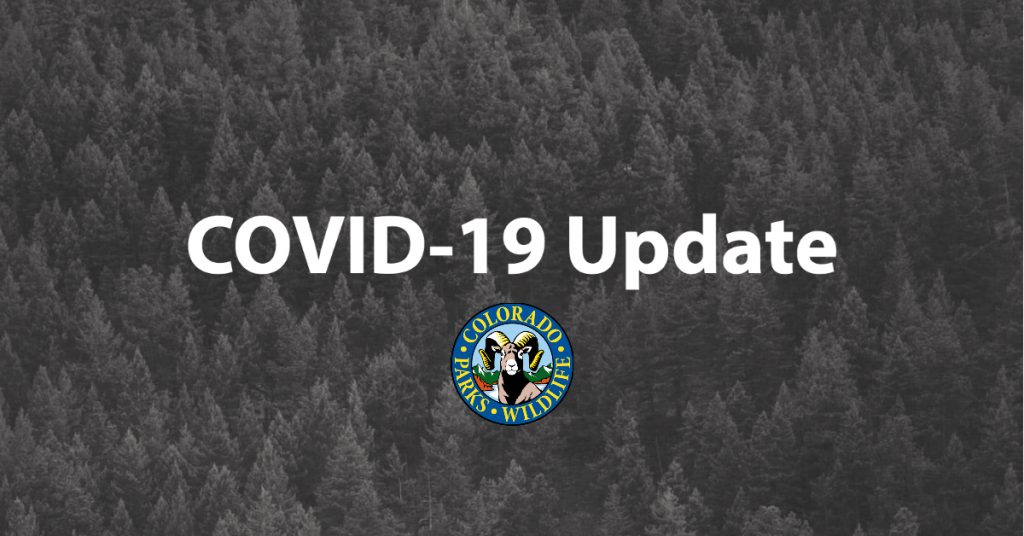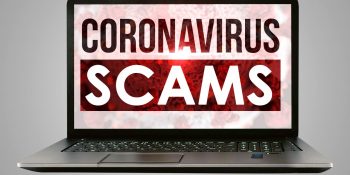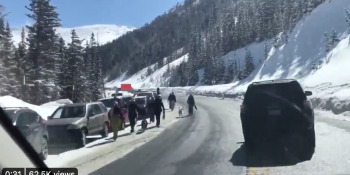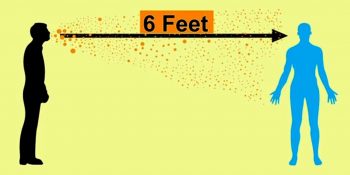In accordance with Governor Polis’ executive order, the Colorado Department of Public Health and Environment issued a public health order implementing a 50% reduction in non-essential business in-person work and increasing social distancing.
In order to protect public health and safety and slow the spread of COVID-19, this public health order increases social distancing and identifies critical workplaces that are exempt to make sure Colorado can provide goods and services to its people during the COVID-19 response.
“We call on Colorado business leaders to join us in these efforts,” says Jill Hunsaker Ryan, executive director, Colorado Department of Public Health and Environment. “Help us protect Coloradans by using your best judgment about where your workplace fits in this public health order. It’s up to all of us to keep our workforce, partners, and the public safe.”
As with all other recent public health orders, businesses are asked to voluntarily comply; however, counties and local public health agencies have the authority to enforce this order. Local law enforcement and/or the local public health agency may contact businesses to encourage them to voluntarily comply. If the problem continues, the business could face civil or criminal action for a violation of the public health order. People who are concerned about noncompliance should express their concerns to the business first, and if you continue to have concerns, report them to local law enforcement or your local public health agency.
The critical workplaces that are exempt include:
•Health care operations.
- Critical Infrastructure, including utilities, fuel supply and transmission, public water, telecommunications, transportation, hotels, organizations that provide for disadvantaged people, and food supply chain.
- Critical Manufacturing, including food, beverages, chemicals, medical equipment, pharmaceuticals, sanitary products, agriculture.
- Critical Retail, including grocery stores, liquor stores, farms, gas stations, restaurants and bars for takeout, marijuana dispensaries but only for medical or curbside delivery, hardware stores.
- Critical Services, including trash and recycling, mail, shipping, laundromats, child care, building cleaning and maintenance, auto supply and repair, warehouses/distribution, funeral homes, crematoriums, cemeteries, animal shelters and rescues.
- News Media.
- Financial Institutions.
- Providers of Basic Necessities to Economically Disadvantaged Populations.
- Construction.
- Defense.
- Public Safety Services like law enforcement, fire prevention and response, EMTs, security, disinfection, cleaning, building code enforcement, snow removal, auto repair.
- Vendors that Provide Critical Services or Products including logistics, child care, tech support, or contractors with critical government services.
- “Critical Government Functions.”
Here are some examples of how this public health order could be implemented:
• Critical businesses: (e.g., hospital): the 50% reduction in workforce will not apply, but social distancing (6 feet apart) and gathering no more than 10 people does apply, to the extent possible.
- Non-critical businesses (e.g., a retail storefront that sells goods other than food): the 50% reduction in workforce does apply. This can be done by implementing teleworking, staggering your workforce, or using other tools. Social distancing and gathering no more than 10 people also applies. If you can show that your employees and customers can maintain a distance of six feet from one another during work hours, you can fill out a waiver form that allows your business to continue operating at more than 50%. This “Self-certification for businesses” attestation form is available now at covid19.colorado.gov/schools-workplaces-community. The order takes effect on Tuesday, March 24, 2020, at 8 a.m. and is set to last through 11:59 p.m. on Friday, April 10, 2020. The order may be extended, changed, ended or replaced, so it is important to follow local sources of good information, like covid19.colorado.gov to stay informed. On March 5, CDPHE’s public health laboratory confirmed the first presumptive positive COVID-19 test result in Colorado. Since then, the number of confirmed cases has continued to climb. Colorado needs to take these precautions for the preservation of public health and safety throughout our entire State and to ensure our health care delivery system can serve those who are sick. To read the public health order, click here. To see frequently asked questions, click here.
Continue to stay up to date by visiting covid19.colorado.gov.
El Departamento de Salud de Colorado emite una orden de salud pública para reducir el número de trabajadores presenciales en empleos “no críticos” y recomienda distancia social extrema
DENVER, Marzo 23, 2020: De acuerdo con la orden ejecutiva del Gobernador Polis, el Departamento de Salud y Medio Ambiente de Colorado emitió una orden de salud pública que implementa una reducción de 50% de trabajadores presenciales en empleos “no críticos” y extrema distancia social.
Con el fin de proteger la salud pública y disminuir el contagio del COVID-19, esta orden de salud pública incrementa la distancia social e identifica a los lugares de trabajo que están exentos, con el fin de asegurar que Colorado pueda proveer bienes y servicios mientras se combate el COVID-19.
“Le hacemos un llamado a los líderes de los negocios en Colorado para unirse a estos esfuerzos,” así los dijo Jill Hunsaker Ryan, Directora Ejecutiva del Departamento de Salud y Medio Ambiente de Colorado. “Ayúdenos a proteger a los habitantes de Colorado al usar el sentido común sobre en qué categoría su fuerza de trabajo se encuentra en la orden de salud pública. Depende de nosotros mantener la fuerza laboral, asociados y la seguridad pública”.
Los lugares de trabajo que están exentos, incluyen: • Cuidado de salud.
- Infraestructura esencial, incluyendo servicios básicos, gasolina, agua, telecomunicaciones, transportación, hoteles, organizaciones que brindan servicio a personas con necesidades especiales y alimentos.
- Manufactura esencial, alimentos, bebidas, químicos, equipo médico, farmacéutico, productos sanitarios, agricultura.
- Ventas de minoristas, supermercados, licorerías, granjas, gasolineras, entrega a domicilio de restaurantes y bares, dispensarios de marihuana pero solo medicinal y la entrega será afuera del dispensario, ferreterías.
- Servicios esenciales, incluyendo basura y reciclaje, correo, envíos, lavanderías, cuidado infantil, mantenimiento y limpieza de edificios, talleres de autos, bodegas/distribución, funerarias, crematorios, cementerios, albergues y rescate animal.
- Medios de comunicación.
- Instituciones financieras.
- Proveedores de necesidades básicas para poblaciones en desventaja económica.
- Construcción.
- Defensa.
- Servicios de seguridad como policías, bomberos, EMTs, seguridad, desinfección, limpieza, cumplimiento del código de edificios, limpieza de nieve y reparación de autos.
- Proveedores de servicios esenciales que incluyen logística, cuidado infantil, apoyo técnico o proveedores de servicios de gobierno esenciales.
- “Funciones de Gobierno esenciales.”
Estos son algunos ejemplos de cómo podría ser implementada esta orde de salud pública:
• Negocios esenciales: (por ejemplo hospital): la reducción del 50% de su fuerza laboral no aplica, pero distancia social (6 pies de distancia) y agrupaciones de no más de 10 personas si aplica, en la medida de lo posible.
- Negocios no esenciales (por ejemplo tiendas minoristas que no sean de alimentos): la reducción del 50% de la fuerza laboral aplica. Esto podría ser por medio de trabajo a distancia, escalonando su fuerza laboral o por medio de otras alternativas. Distancia social y no más en grupos de 10 personas aplica. Si puede mostrarle a sus empleados y clientes a mantenerse en una distancia de 6 pies uno de otro durante las horas de trabajo, puede llenar un documento que le permite continuar operando con más del 50% de su fuerza laboral. Los puede encontrar en “Self-certification for businesses” attestation form en la página covid19.colorado.gov/schools-workplaces-community. Esta orden toma efecto el martes 24 de marzo, 2020 a partir de las 8:00 a.m. y está pautado hasta las 11:59 p.m. del viernes, 10 de abril, 2020. El 5 de marzo, el laboratorio del CDPHE confirmó el primer caso presuntamente positivo del COVID-19 en Colorado. Desde esa fecha, el número de casos confirmados se han incrementado. Colorado necesita tomar estas medidas de precaución para salvaguardar la salud pública y la seguridad en en el estado de Colorado y así asegurar que el sistema del cuidado de salud pueda atender a todos lo que están enfermos. Para leer la orden pública visite aqui. Para preguntas frecuentes visite aqui.
Actualizaciones en covid19.colorado.gov.
SPREAD THE NEWS
COMMENT, Like, Follow & SHARE @I70Scout

